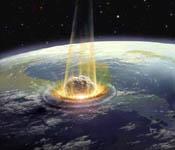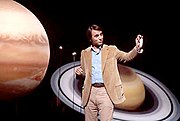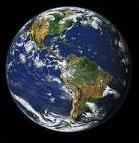"Two things are infinite: the universe and human stupidity; and I'm not sure about the universe." (Albert Einstein)
If Einstein had been born in Brazil and he had been northeastern (this article was originally written in portuguese, using brazilian northeastern regional slang), certainly he wouldn't have used fancy words like "stupidity". Probably he would have said "laziness" (it is the literal translation of the word "leseira" in brazilian slang).
The "laziness" is characterized when an individual meets certain situation in such a way that, in someone else's point of view, it makes him look like a complete idiot. In this case, he would be called "lazy person" (in brazilian slang: "lesado" or "leso"). In the definition of the doctor in linguistics Sérgio Freire, we have: "The ‘laziness' is a momentary dullness that happens to the ‘lazy person'." The phrase that such individual listens the most is the following one: "Stop being lazy!"(in brazilian slang: "Deixa de ser lesado!"). Despite the "laziness" most common causes are things like misunderstandings, sleepiness, mental incapacity, lack of reflection practice, haste and stubbornness, certainly one of its greatest causes is ignorance.
The human being, that appeared only recently in this planet (the Homo sapiens species is a little more than 150 thousand years old), has already been so lazy that almost caused his own destruction, and has already made a lot of bad things thou. Despite the enormous clumsy, we think we are in the top of planetary intelligence (and in some cases, of universal intelligence). Douglas Adams, in his "The Hitchhiker's Guide to the Galaxy", explains: "For example, in the planet Earth the men had always considered themselves more intelligent than the dolphins, because they had created so many things - the wheel, New York, the wars, etc. -, while the dolphins only knew to swim and have fun. However, the dolphins, in their turn, had always found themselves much more intelligent than the men - precisely for the same reasons."
"For example, in the planet Earth the men had always considered themselves more intelligent than the dolphins, because they had created so many things - the wheel, New York, the wars, etc. -, while the dolphins only knew to swim and have fun. However, the dolphins, in their turn, had always found themselves much more intelligent than the men - precisely for the same reasons."
Other previous species had already been sufficiently destructive. Let's remember the beginnings of life in the Earth, about 3.8 billion years ago. Since then and during the following 3 billion years, only unicellular beings existed (basically bacteria - it seems that they didn't care very much with team work). The first great global pollution crisis occurred approximately 2.3 billion years ago because the unicellular beings called Stromatolites (so small, however so destructive). At the time, they were true villains, therefore they had started to produce a gas so poisonous that almost extinguished all the life of the Earth. E this gas was, nothing more and nothing less than... the oxygen. In those times, oxygen was a rarity (less than 1% of the current levels) and no one still could breath it. The stromatolites then quickly introduced this gas in the atmosphere and caused a global crisis, therefore the oxygen is a powerful organic composite annihilator and until today many bacteria are destroyed because of it. It can seem weird to call this a "global pollution crisis", but when the inhabitants of the planet are all anaerobic bacteria (that means they don't breathe oxygen), it's better to cry out loud for help.
In one of the branches of the tree of life, the organisms had to develop biochemical methods to deal with oxygen, where one of these methods was the aerobic breath, these survived, multiplied themselves and today, the oxygen is air we breathe. Nothing better than favorable mutations being selected gradual and cumulatively by the natural selection. In parallel, other branches of the unicellular evolution continued in the old anaerobic life style and today, to the lesser signal of oxygen, they use to die. The bad guys stromatolites at least didn't make it intentionally, what already is a extenuating circumstance for them.
 Other waves of mass destruction are caused by cosmic hazard when dissolute asteroids reach our vulnerable planet. It was this way that the dinosaurs dynasty, that had already lasted more than 160 million years, finished 65 million years ago when a bolide with an approach size of 10 kilometers of diameter reached the peninsula of Yucatan in Mexico creating a crater of 170 kilometers of diameter and raising sufficient dust to darken the Earth for some years, what lead to the extinction of the dinosaurs after some milleniums. Blocking the sun light passage, many vegetable species died, eliminating the nourishing source for herbivore dinosaurs e, consequently, without the herbivorous meat to eat, the carnivores ended up dying too.
Other waves of mass destruction are caused by cosmic hazard when dissolute asteroids reach our vulnerable planet. It was this way that the dinosaurs dynasty, that had already lasted more than 160 million years, finished 65 million years ago when a bolide with an approach size of 10 kilometers of diameter reached the peninsula of Yucatan in Mexico creating a crater of 170 kilometers of diameter and raising sufficient dust to darken the Earth for some years, what lead to the extinction of the dinosaurs after some milleniums. Blocking the sun light passage, many vegetable species died, eliminating the nourishing source for herbivore dinosaurs e, consequently, without the herbivorous meat to eat, the carnivores ended up dying too.
More recently, another asteroid hit the planet, and this asteroid is Homo sapiens. In his book "The End of Evolution" (mass extinctions occur routinely in the geologic ages being "the end of evolution" for many species, however also being an excellent chance and the beginning of evolution for many others), the paleontologist Peter Ward comments on the three main mass extinctions that happened, and he calls them "The three events". The first event is known as Permian-Triassic Extinction that occurred 250 million years ago, sweeping more than 90% of all species of life that existed at the time. As the second event being the K-T Extinction, having killed more than 50% of the species, including the dinosaurs. And the Third Event is occurring in this exact moment, and now we are the guilty ones, the human beings.
About this, the paleontologist Stephen Jay Gould afirms: "The rhythm of the extinction of the species provoked by human rapacity can currently be equivalent to the rhythm of the losses in the great events of mass extinction that punctuated the history of life.". And Timothy Ferris says: "The current extinction of the species by the hand of man is a crime that the posterity will consider more pernicious than the burning of the Alexandria's library.". Obviously that the destruction of libraries with centuries of accumulated human knowledge was an irreparable loss, but this time, we are losing lives, and not only ours.
Our lack of understanding on the global necessities and on our role in nature enormously confuses the course of the planetary life, to which we belong. We would have to think in the long run and not to be so immediatists consuming the maximum of natural resources in so short intervals of time. Entire forests already have been knocked down, billions of tons of pollutant fossil fuel are burnt daily and in an inconsequential way, strongly unbalancing the nature's economy. We have already directly caused the extinction of innumerable species with our own hands (the defenseless dodô knows about it), and many others indirectly because of our clumsy behavior. We colonize islands and continents, we pollute rivers and seas, we modify the environment, we mix strange animals leading to the uncontrolled and mutual extinction between them.
The web of life is an enormous entangled and strongly connected net, sewn throughout millions of years and if we pull one single line inadvertently, everything can fall apart. A true butterfly effect where small initial causes create great effects in shock waves that propagate through time leading to absolutely unexpected consequences.
We cannot prevent asteroid collisions, the destruction provoked by tsunamis and earthquakes or a volcano eruption, but we can prevent our egoism and greed. We have the capacity for this, we only must use it. We are in our technological adolescence and our lack of control is huge. We already know many things, while we ignore many other things completely. It seems that we still don't understand that we are nature too (see the text "Separation Delusion") and that destroying nature will bring us problems. "The Revenge of Gaia" is close as has foreseen the environmentalist James Lovelock in the 1970's with his "Gaia Hypothesis", where he claims that the planet behaves like a living organism. We have the duty to take care of its health, to say it better, take care of our own health.
 No doubt at all that our species is most aggressive and virulent one that this planet has already known. We are using very badly the natural resources in an unbalanced way and not thinking about the consequences. E we also have the knowledge and technology to provoke a nuclear war what would destroy us and almost all the species of the planet, besides leaving the planet sterile for a long time. We must usufruct the nature, certainly, but with wisdom. I don't want us to destroy the air we breathe, the oceans where we swim and nor the lands we plant. I want very much that we can survive and to revert this global heating and mass extinction picture that is happening. I desire and incentive that we take an attitude about what is happening, signing ecological treats, preserving the environment, not polluting the planet, and trying to clean the dirt that we have made.
No doubt at all that our species is most aggressive and virulent one that this planet has already known. We are using very badly the natural resources in an unbalanced way and not thinking about the consequences. E we also have the knowledge and technology to provoke a nuclear war what would destroy us and almost all the species of the planet, besides leaving the planet sterile for a long time. We must usufruct the nature, certainly, but with wisdom. I don't want us to destroy the air we breathe, the oceans where we swim and nor the lands we plant. I want very much that we can survive and to revert this global heating and mass extinction picture that is happening. I desire and incentive that we take an attitude about what is happening, signing ecological treats, preserving the environment, not polluting the planet, and trying to clean the dirt that we have made.
This makes me remember another Douglas Adams's phrase which fits very well in this scenario: "Many were increasingly of the opinion that they'd all made a big mistake in coming down from the trees in the first place. And some said that even the trees had been a bad move, and that no one should ever have left the oceans.".
Since our ancestors left the sea and had conquered the land, later they had gone up in the trees and finally they had come down from them to conquer African savannas e, consequently, the entire world, let's not disappoint them. Let's stop being "lazy" and let's change our behavior, before it's too late. Since we are going certainly to be extinct some day (as well as any species), let's not anticipate this day, at least.
If Einstein had been born in Brazil and he had been northeastern (this article was originally written in portuguese, using brazilian northeastern regional slang), certainly he wouldn't have used fancy words like "stupidity". Probably he would have said "laziness" (it is the literal translation of the word "leseira" in brazilian slang).
The "laziness" is characterized when an individual meets certain situation in such a way that, in someone else's point of view, it makes him look like a complete idiot. In this case, he would be called "lazy person" (in brazilian slang: "lesado" or "leso"). In the definition of the doctor in linguistics Sérgio Freire, we have: "The ‘laziness' is a momentary dullness that happens to the ‘lazy person'." The phrase that such individual listens the most is the following one: "Stop being lazy!"(in brazilian slang: "Deixa de ser lesado!"). Despite the "laziness" most common causes are things like misunderstandings, sleepiness, mental incapacity, lack of reflection practice, haste and stubbornness, certainly one of its greatest causes is ignorance.
The human being, that appeared only recently in this planet (the Homo sapiens species is a little more than 150 thousand years old), has already been so lazy that almost caused his own destruction, and has already made a lot of bad things thou. Despite the enormous clumsy, we think we are in the top of planetary intelligence (and in some cases, of universal intelligence). Douglas Adams, in his "The Hitchhiker's Guide to the Galaxy", explains:
 "For example, in the planet Earth the men had always considered themselves more intelligent than the dolphins, because they had created so many things - the wheel, New York, the wars, etc. -, while the dolphins only knew to swim and have fun. However, the dolphins, in their turn, had always found themselves much more intelligent than the men - precisely for the same reasons."
"For example, in the planet Earth the men had always considered themselves more intelligent than the dolphins, because they had created so many things - the wheel, New York, the wars, etc. -, while the dolphins only knew to swim and have fun. However, the dolphins, in their turn, had always found themselves much more intelligent than the men - precisely for the same reasons."Other previous species had already been sufficiently destructive. Let's remember the beginnings of life in the Earth, about 3.8 billion years ago. Since then and during the following 3 billion years, only unicellular beings existed (basically bacteria - it seems that they didn't care very much with team work). The first great global pollution crisis occurred approximately 2.3 billion years ago because the unicellular beings called Stromatolites (so small, however so destructive). At the time, they were true villains, therefore they had started to produce a gas so poisonous that almost extinguished all the life of the Earth. E this gas was, nothing more and nothing less than... the oxygen. In those times, oxygen was a rarity (less than 1% of the current levels) and no one still could breath it. The stromatolites then quickly introduced this gas in the atmosphere and caused a global crisis, therefore the oxygen is a powerful organic composite annihilator and until today many bacteria are destroyed because of it. It can seem weird to call this a "global pollution crisis", but when the inhabitants of the planet are all anaerobic bacteria (that means they don't breathe oxygen), it's better to cry out loud for help.
In one of the branches of the tree of life, the organisms had to develop biochemical methods to deal with oxygen, where one of these methods was the aerobic breath, these survived, multiplied themselves and today, the oxygen is air we breathe. Nothing better than favorable mutations being selected gradual and cumulatively by the natural selection. In parallel, other branches of the unicellular evolution continued in the old anaerobic life style and today, to the lesser signal of oxygen, they use to die. The bad guys stromatolites at least didn't make it intentionally, what already is a extenuating circumstance for them.
 Other waves of mass destruction are caused by cosmic hazard when dissolute asteroids reach our vulnerable planet. It was this way that the dinosaurs dynasty, that had already lasted more than 160 million years, finished 65 million years ago when a bolide with an approach size of 10 kilometers of diameter reached the peninsula of Yucatan in Mexico creating a crater of 170 kilometers of diameter and raising sufficient dust to darken the Earth for some years, what lead to the extinction of the dinosaurs after some milleniums. Blocking the sun light passage, many vegetable species died, eliminating the nourishing source for herbivore dinosaurs e, consequently, without the herbivorous meat to eat, the carnivores ended up dying too.
Other waves of mass destruction are caused by cosmic hazard when dissolute asteroids reach our vulnerable planet. It was this way that the dinosaurs dynasty, that had already lasted more than 160 million years, finished 65 million years ago when a bolide with an approach size of 10 kilometers of diameter reached the peninsula of Yucatan in Mexico creating a crater of 170 kilometers of diameter and raising sufficient dust to darken the Earth for some years, what lead to the extinction of the dinosaurs after some milleniums. Blocking the sun light passage, many vegetable species died, eliminating the nourishing source for herbivore dinosaurs e, consequently, without the herbivorous meat to eat, the carnivores ended up dying too.More recently, another asteroid hit the planet, and this asteroid is Homo sapiens. In his book "The End of Evolution" (mass extinctions occur routinely in the geologic ages being "the end of evolution" for many species, however also being an excellent chance and the beginning of evolution for many others), the paleontologist Peter Ward comments on the three main mass extinctions that happened, and he calls them "The three events". The first event is known as Permian-Triassic Extinction that occurred 250 million years ago, sweeping more than 90% of all species of life that existed at the time. As the second event being the K-T Extinction, having killed more than 50% of the species, including the dinosaurs. And the Third Event is occurring in this exact moment, and now we are the guilty ones, the human beings.
About this, the paleontologist Stephen Jay Gould afirms: "The rhythm of the extinction of the species provoked by human rapacity can currently be equivalent to the rhythm of the losses in the great events of mass extinction that punctuated the history of life.". And Timothy Ferris says: "The current extinction of the species by the hand of man is a crime that the posterity will consider more pernicious than the burning of the Alexandria's library.". Obviously that the destruction of libraries with centuries of accumulated human knowledge was an irreparable loss, but this time, we are losing lives, and not only ours.
Our lack of understanding on the global necessities and on our role in nature enormously confuses the course of the planetary life, to which we belong. We would have to think in the long run and not to be so immediatists consuming the maximum of natural resources in so short intervals of time. Entire forests already have been knocked down, billions of tons of pollutant fossil fuel are burnt daily and in an inconsequential way, strongly unbalancing the nature's economy. We have already directly caused the extinction of innumerable species with our own hands (the defenseless dodô knows about it), and many others indirectly because of our clumsy behavior. We colonize islands and continents, we pollute rivers and seas, we modify the environment, we mix strange animals leading to the uncontrolled and mutual extinction between them.
The web of life is an enormous entangled and strongly connected net, sewn throughout millions of years and if we pull one single line inadvertently, everything can fall apart. A true butterfly effect where small initial causes create great effects in shock waves that propagate through time leading to absolutely unexpected consequences.
We cannot prevent asteroid collisions, the destruction provoked by tsunamis and earthquakes or a volcano eruption, but we can prevent our egoism and greed. We have the capacity for this, we only must use it. We are in our technological adolescence and our lack of control is huge. We already know many things, while we ignore many other things completely. It seems that we still don't understand that we are nature too (see the text "Separation Delusion") and that destroying nature will bring us problems. "The Revenge of Gaia" is close as has foreseen the environmentalist James Lovelock in the 1970's with his "Gaia Hypothesis", where he claims that the planet behaves like a living organism. We have the duty to take care of its health, to say it better, take care of our own health.
 No doubt at all that our species is most aggressive and virulent one that this planet has already known. We are using very badly the natural resources in an unbalanced way and not thinking about the consequences. E we also have the knowledge and technology to provoke a nuclear war what would destroy us and almost all the species of the planet, besides leaving the planet sterile for a long time. We must usufruct the nature, certainly, but with wisdom. I don't want us to destroy the air we breathe, the oceans where we swim and nor the lands we plant. I want very much that we can survive and to revert this global heating and mass extinction picture that is happening. I desire and incentive that we take an attitude about what is happening, signing ecological treats, preserving the environment, not polluting the planet, and trying to clean the dirt that we have made.
No doubt at all that our species is most aggressive and virulent one that this planet has already known. We are using very badly the natural resources in an unbalanced way and not thinking about the consequences. E we also have the knowledge and technology to provoke a nuclear war what would destroy us and almost all the species of the planet, besides leaving the planet sterile for a long time. We must usufruct the nature, certainly, but with wisdom. I don't want us to destroy the air we breathe, the oceans where we swim and nor the lands we plant. I want very much that we can survive and to revert this global heating and mass extinction picture that is happening. I desire and incentive that we take an attitude about what is happening, signing ecological treats, preserving the environment, not polluting the planet, and trying to clean the dirt that we have made.This makes me remember another Douglas Adams's phrase which fits very well in this scenario: "Many were increasingly of the opinion that they'd all made a big mistake in coming down from the trees in the first place. And some said that even the trees had been a bad move, and that no one should ever have left the oceans.".
Since our ancestors left the sea and had conquered the land, later they had gone up in the trees and finally they had come down from them to conquer African savannas e, consequently, the entire world, let's not disappoint them. Let's stop being "lazy" and let's change our behavior, before it's too late. Since we are going certainly to be extinct some day (as well as any species), let's not anticipate this day, at least.








